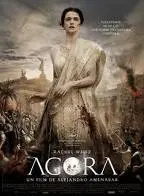 In Part I of this two-part series, I talked about using books and libraries in doing historical research. Although print matter is a good place to start, in today’s world you can’t ignore the Internet. But there are two problems: quantity and quality – too much of the former and not enough of the latter. Unlike traditionally published books, which have to go through some screening process (in academic circles that can be quite rigorous), anyone can put anything up on the Net and pass it off as truth. So what’s a good historical fiction writer to do?
In Part I of this two-part series, I talked about using books and libraries in doing historical research. Although print matter is a good place to start, in today’s world you can’t ignore the Internet. But there are two problems: quantity and quality – too much of the former and not enough of the latter. Unlike traditionally published books, which have to go through some screening process (in academic circles that can be quite rigorous), anyone can put anything up on the Net and pass it off as truth. So what’s a good historical fiction writer to do?
Stick to sites that have some stake in maintaining their reputation for accuracy such as universities and historical, archaeological and professional societies. Many sites not only update articles, but blog and twitter as well. Others aggregate the news. The Archaeological Institute of America has a daily update of archaeology in the news. When you find an interesting one, subscribe to their RSS feed, get email alerts or tweets when new information is posted. Google also has Google Scholar (click on the “more” button at the Google.com home page) that searches professional and scholarly literature. Many newspapers and local government organizations are digitizing their archives and can be a great source of primary material. (Remember your best friend the research librarian? Tap them for help on accessing those databases.)


